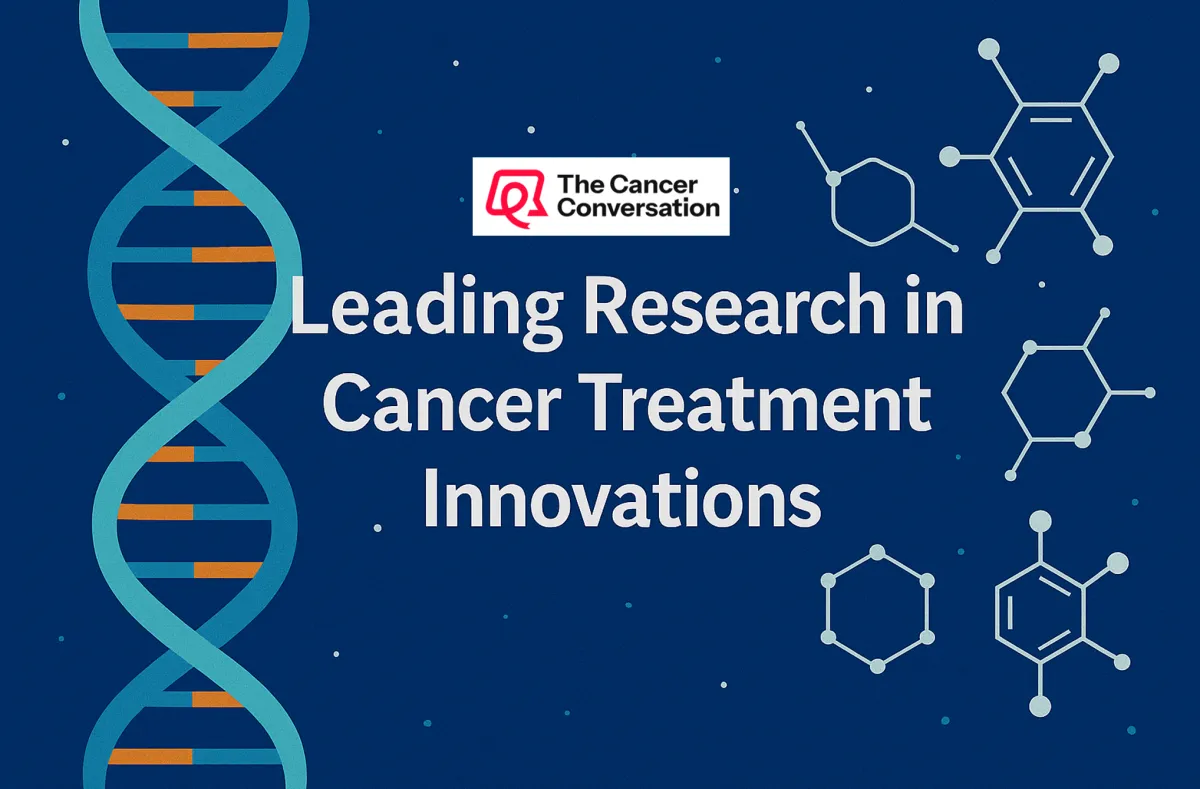
Leading Research in Cancer Treatment Innovations
Facing a cancer diagnosis can be overwhelming, but the world of cancer treatment is filled with ground breaking advances that offer renewed hope and strength. Today, patients and their loved ones have access to a wide array of cancer treatment innovations, combining traditional methods with holistic cancer care to form a comprehensive approach to healing. Embracing both mind-body wellness and integrative cancer therapy, The Cancer Conversation provides a unique blend of support that nurtures both body and spirit. As we explore these advancements, you’ll find empowering stories and insights designed to uplift and inspire resilience on your healing path. Join us in this hopeful exploration and discover how these innovations can make a difference in your life. 🌟
Breakthroughs in Cancer Treatment

Cancer treatment is rapidly evolving with exciting breakthroughs making waves in the medical field. These advances are crucial as they bring new hope for effective therapies and enhance the quality of life for patients globally. Let's delve into some cutting-edge therapies and personalized medicine approaches.
Cutting-Edge Therapies
Cutting-edge cancer therapies are revolutionizing treatment by harnessing the power of new technologies. Immunotherapy, for example, uses the body's immune system to fight cancer. This method has shown promise in treating previously hard-to-treat cancers. Recent studies highlight its potential in achieving long-term remission.
Another significant advancement is the use of CAR T-cell therapy, a process where a patient's T-cells are modified to attack cancer cells. This therapy has demonstrated remarkable results in certain types of leukaemia and lymphoma. It represents a paradigm shift in cancer treatment, offering a tailored approach to combat the disease.
AI and machine learning are also playing a pivotal role in cancer research. They assist in predicting how tumours respond to different treatments, thus paving the way for more effective therapies. This approach ensures treatments are more precisely targeted and potentially more effective.
Personalized Medicine Approaches
Personalized medicine tailors treatment based on an individual's genetic makeup. This approach helps in identifying the most effective therapies, minimizing side effects. Research has shown that patients receiving personalized treatments often experience better outcomes.
A vital component of personalized medicine is genomic sequencing. By understanding the genetic mutations driving cancer, doctors can prescribe treatments that specifically target these changes. This method allows for a more customized and effective treatment plan.
Another aspect is the integration of biomarkers to predict responses to treatments. Biomarkers can indicate how a patient might react to specific drugs, enabling a more targeted therapeutic strategy. This strategy not only enhances treatment efficacy but also reduces unnecessary exposure to ineffective therapies.
Holistic Cancer Care Strategies

Beyond traditional medical treatments, holistic cancer care strategies emphasize the integration of body, mind, and spirit. These approaches support conventional methods and focus on treating the whole person, not just the disease.
Integrative Cancer Therapy Benefits
Integrative cancer therapy combines traditional treatments with complementary therapies to improve overall well-being. This approach reduces stress and enhances healing. Techniques such as acupuncture, massage, and meditation are commonly included.
Benefits of integrative therapy include improved pain management and reduced treatment side effects. Studies show that patients engaging in these therapies often report higher quality of life and improved emotional health.
Emphasizing a holistic approach ensures that patients receive comprehensive care, addressing both physical symptoms and emotional well-being. The synergy between conventional and complementary treatments can lead to better overall outcomes and improved patient satisfaction.
Mind-Body Wellness Practices
Mind-body wellness practices focus on the connection between mental and physical health. Practices like yoga, tai chi, and guided imagery help manage stress and anxiety, promoting relaxation and healing.
These practices can be particularly beneficial for cancer patients, providing a sense of control and empowerment. Mindfulness meditation, for example, can enhance emotional resilience and improve coping mechanisms.
Implementing mind-body practices as part of a treatment plan helps in reducing symptoms of depression and anxiety. Patients often find increased clarity and a more positive outlook on their cancer journey when incorporating these practices into their daily routine.
Stories of Hope and Resilience

Stories of hope and resilience serve as powerful motivators for those facing cancer. They provide insight into the transformative impact of innovative treatments and holistic care approaches.
Patient Success Stories
Patient success stories highlight the triumphs and challenges faced during cancer treatment. Sarah, a breast cancer survivor, attributes her remission to a combination of traditional and holistic therapies. Her journey emphasizes the importance of a comprehensive treatment plan.
Key Takeaways:
Combining therapies can enhance treatment efficacy.
Emotional and community support plays a vital role.
Continued research and innovation offer hope for all cancer patients.
These stories inspire others by showcasing the power of perseverance and the impact of personalized and integrative care.
Caregiver Perspectives and Insights
Caregivers play a crucial role in the cancer journey, offering unwavering support and care. They share unique insights into the challenges and victories associated with treatment.
Insights:
Effective communication with healthcare providers is essential.
Emotional support and self-care are vital for caregivers.
Building a supportive network can alleviate caregiver stress.
Caregiver perspectives emphasize the importance of a collaborative approach to cancer treatment, highlighting the need to support not only patients but also those who care for them tirelessly.







